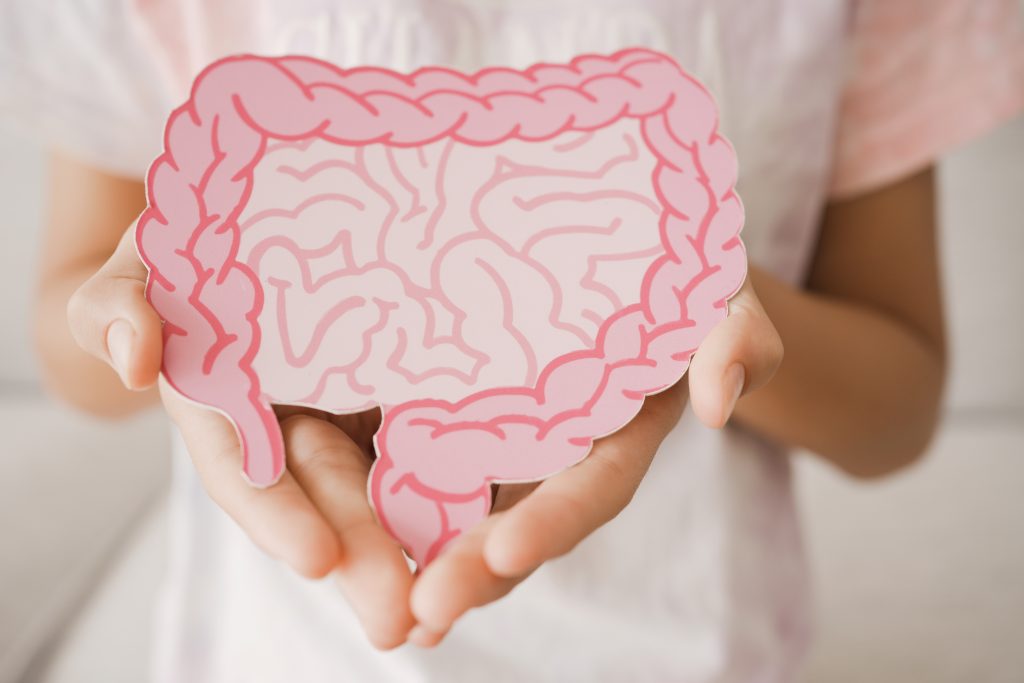Inflammatory Bowel Disease (IBD) refers to chronic digestive tract inflammation and includes conditions like Crohn’s disease and ulcerative colitis. IBD affects millions of people worldwide, leading to uncomfortable and disruptive symptoms. Understanding what triggers IBD and how to manage it is essential for improving quality of life.
Understanding IBD Causes
Inflammatory Bowel Disease (IBD) is a complex disorder influenced by both genetic and environmental factors. Let’s break down how each of these components contributes to IBD:
Genetics play a critical role in predisposing individuals to IBD, which includes Crohn’s Disease (CD) and Ulcerative Colitis (UC).
- Heritability:
- IBD has a strong genetic component, with family history being a major risk factor. Individuals with a first-degree relative with IBD have a 4 to 10 times higher risk of developing the disease.
- Identified Genes:
- Advances in genetic research have identified over 200 genetic loci associated with IBD risk.
- The NOD2 gene is one of the most well-known genetic markers for Crohn’s disease. Mutations in this gene affect the body’s ability to recognize bacteria, leading to an exaggerated immune response in the gut.
- HLA genes (Human Leukocyte Antigen) are linked more closely with Ulcerative Colitis. These genes are involved in the immune system’s ability to distinguish between self and non-self.
- Immune System Dysregulation:
- Genetic mutations can disrupt the immune system’s response to gut bacteria, leading to chronic inflammation.
- Mutations can also impair barrier function in the intestinal lining, allowing harmful substances to trigger an inflammatory response.
While genetics establish a predisposition to IBD, environmental factors often trigger disease onset or flare-ups.
- Diet:
- Western diets (high in processed foods, fats, and sugars) are linked to increased IBD incidence.
- Low fiber intake and lack of prebiotics can negatively affect gut microbiota, which is crucial for maintaining intestinal health.
- Gut Microbiome:
- The gut microbiota plays a central role in IBD pathogenesis.
- Disruptions in the gut’s bacterial composition (dysbiosis) can trigger or exacerbate inflammation in genetically predisposed individuals.
- Infections:
- Gastrointestinal infections can alter the gut microbiome and provoke immune responses, leading to chronic inflammation in people at risk.
- Smoking:
- Smoking has opposite effects on the two major types of IBD:
- Increases the risk of Crohn’s Disease.
- Decreases the risk of Ulcerative Colitis.
- Smoking has opposite effects on the two major types of IBD:
- Stress:
- Psychological stress does not directly cause IBD but can trigger flare-ups by disrupting the gut-brain axis and increasing inflammation.
- Antibiotics and Medications:
- Frequent antibiotic use can disrupt the gut microbiome, leading to an increased risk of IBD.
- Nonsteroidal anti-inflammatory drugs (NSAIDs) can damage the intestinal lining and worsen symptoms.
- Geography and Hygiene:
- IBD is more common in developed countries and urban areas, suggesting a link with lifestyle and hygiene.
- The hygiene hypothesis suggests that reduced exposure to pathogens in childhood might lead to an underdeveloped immune system, increasing susceptibility to autoimmune diseases like IBD.
Diagnosing IBD Symptoms
Inflammatory Bowel Disease (IBD) presents with a wide range of symptoms that vary depending on the severity, type, and location of inflammation in the gastrointestinal (GI) tract. The hallmark symptoms of IBD include persistent diarrhea, which can range from mild symptoms to severe symptoms and may contain blood or mucus, and abdominal pain or cramping, often associated with bowel movements.
Patients may also experience urgency to defecate and a feeling of incomplete evacuation, contributing to frequent trips to the bathroom. Rectal bleeding is common, especially in ulcerative colitis, where inflammation primarily affects the colon and rectum. Other GI symptoms include bloating, gas, nausea, and in severe cases, vomiting.
How Do Doctors Diagnose IBD?
Diagnosing Inflammatory Bowel Disease (IBD), which includes Crohn’s Disease and Ulcerative Colitis, involves a combination of medical history, physical examination, lab tests, imaging studies, and endoscopic procedures. Since IBD symptoms can overlap with other gastrointestinal disorders like irritable bowel syndrome (IBS) or infectious colitis, an accurate diagnosis requires ruling out other conditions first.
The diagnostic process typically begins with a detailed medical history, including family history of IBD, symptom duration, stool patterns, and the presence of extraintestinal symptoms like joint pain or skin rashes. A physical exam may reveal signs of malnutrition, abdominal tenderness, or perianal disease, especially in Crohn’s disease.
Endoscopic procedures are the cornerstone of IBD diagnosis. Colonoscopy allows direct visualization of the colon and terminal ileum to assess inflammation, ulcers, and lesions. In Crohn’s disease, biopsy findings may show granulomas, while ulcerative colitis is characterized by continuous inflammation starting from the rectum.
Common IBD Triggers
While the exact cause of IBD is not fully understood, certain triggers can worsen symptoms or lead to flare-ups.
Stress is a common trigger, as emotional or physical stress can exacerbate inflammation in the digestive tract.
Certain foods, such as fatty or spicy meals, can irritate the gut and trigger symptoms.
Smoking, particularly in people with Crohn’s disease, is another major factor that worsens symptoms.
Hormonal changes, such as those that occur during menstruation, may also impact symptom severity. Additionally, infections or illnesses unrelated to IBD can sometimes lead to a flare-up.
Effective Treatment Options
There is no cure for IBD, but several treatment options can help manage symptoms and reduce inflammation.
Anti-inflammatory drugs, such as corticosteroids and aminosalicylates, are commonly prescribed to control inflammation.
Immune system suppressors can also reduce the immune response that triggers inflammation. For people with more severe cases, biologic therapies may be recommended to target specific proteins involved in inflammation.
In some cases, surgery may be necessary to remove damaged parts of the digestive tract, particularly in people with Crohn’s disease. Additionally, lifestyle changes, such as dietary adjustments and stress management, can help control symptoms and improve quality of life.
Additional Symptomatic Treatment Options
Solamyn is an available medication that combines two antihistamines to help with symptoms that can be associated with IBD. While this is not a treatment for IBD, it may lessen some of the associated symptoms. Using the right ratio of certain antihistamines to block both the histamine-1 and histamine-2 receptors has shown a great improvement in symptoms. Patients have seen decreased bowel output; more formed stools; less urgency; and less abdominal cramping. This medication can be used in addition to traditional IBD therapies.
Managing Chronic IBD
Living with chronic IBD requires a combination of medical treatment and lifestyle adjustments. Identifying triggers and making dietary changes is a key part of symptom management.
A diet rich in fruits, vegetables, lean proteins, and whole grains can improve digestion. Some people may need to avoid high-fiber foods, dairy, or fatty meals that can trigger flare-ups.
Keeping stress levels in check is also important for managing IBD. Mindfulness practices like yoga or meditation can help reduce stress and prevent symptom flare-ups. Regular exercise can also improve digestion and boost overall well-being.
Are you looking for fast and effective relief for your digestive discomfort? Visit Get Relief Rx today to explore proven solutions to ease your symptoms and improve your gut health. Click here to start feeling better now!




